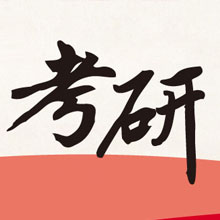2015年5月—SAT北美考区写作第二题解析
2015-08-25 09:39 新东方
2015年5月SAT考试作文北美区第二题的题目: “Do people feel truly happy when their achievements benefit others?”
之前对College Board 命题所涉范围与概念有所了解的同学们对本题应不觉陌生,因为 “happy”和“happiness”是SAT作文考试题库中最常被讨论的话题之一。在过去近十年的考卷中,“happy” 曾以各种方式被提及或考察,例如 “Is happiness something over which people have no control, or can people choose to be happy?”、“Are people more likely to be happy if they focus on goals other than their own happiness?”、“Is it best to determine how wise people are by how happy they are?”、“Do material possessions make us truly happy?”, 等等。总的来说,同学们在复习备考的过程中,需要对“happy”的涵义、人与“happy”的关系、影响“happy”的各种客观主观因素有事先的思考与积累,才能够自如应对这类题目。
单就本次考试而言,题目要求考生探讨 “happy” 与一个客观因素——“人的成就对他人的助益”之间的关系。由于 “happy” 本身是一种主观感受,因此对其影响因素的判断也是见仁见智。考生既可以立论 “快乐是自己的,与能否帮到别人无关,只与自己的成就或享受有关”,当然也可以持“对于立志于泽及大众的人而言,只有自己的成就对别人有益,才能真正感受到快乐”。由于考生平日积累的素材多为对社会有所贡献的名人事例,因此对多数考生而言,选择后一种观点在素材选择上的自由度更大。现仅就第二种观点进行简单的写法解析,辅以范文,供广大考生参考。
每一段例证的前半部分比较简单,只要运用所积累的名人案例,论证“他(她)的成就是如何惠及他人”即可。难点是后半部分,即论证“对他人的帮助是如何为自己带来真正的快乐的”。这里最好对例子主人公的价值观作简要的阐述,说明“他(她)就是以帮助他人为自我价值实现方式的人”。这样的话,后半部分的逻辑就能够建立了。具体示例,请参考以下范文。
When questioned about “how will you get truly happy”, not every one may come up with a quick answer, since there’s a reasonable amount of accuracy to equal “happiness” to “the ultimate goal of one’s life”, and it is not easy to find the surest path to that goal. However, one thing is clear that the way leading people to happiness varies. For those who favor possession or consumption, a check may satiate all. For those who enjoy the process of “strive and achieve”, a golden medal is the best reward. For those who maintain that their life value may only be measured by how much they have contributed to their community, it is not their achievements, but the benefit others could reap from those achievements that really matters. Gao Xingjian and Sam Walton are among the third group of people and could best embody their spirits.
For Gao Xingjian, the Nobel Prize has brought him to his readers and then happiness back to himself. Gao is the first writer in mainland China who won the Nobel Prize in Literature. Unlike other winners who may receive the reward with the cheers of their long-time fans, Gao remains as a nobody to the general public until he went to Sweden. Recording something that may cast rocks to the authority, most of Gao’s literature works are banned in his home country. Fortunately, the Nobel Prize becomes the best introduction for him and tons of readers get to access his unique insight into the contemporary life in China by reading his thoughts. When talking about how the Nobel Prize has brought him happiness, Gao said, “I won’t be this happy if I’m a ‘public writer’ and receive the prize with that identity. To tell the truth, I don't really care if I have produced some masterpiece or get any trophy for it. What counts is how many readers have ever read my words and how many of those characters have stirred something in their heart. And now the prize grants me that chance. I dare to say no Nobel winner will be more delightful and thankful than me.” As a writer who weighs the sheer piece of illumination he may serve to others than the overwhelming sea of wisdom he can explore only by himself, Gao has found true happiness by “going public”.
Similar to the giant in the field of literature, Sam Walton, a business tycoon, feels truly happy when he has brought fortune to his employees. Walton, as his family name implies, is the head of the Walmart Store and the one who has realized the miracle of “you can always find a Walmart store to help you find what you want”. Thanks to his successful business, Walton has accumulated a titanic amount of wealth and won world reputation. However, being a billionaire seemingly cannot satisfy Walton. He dreams of realizing himself by realizing the dream of a lot of others. To be specific, he tried to share wealth with his employees through a big plan which may look bold at that time—he sold the stocks of Walmart to the ordinary workers in the store in a relatively low price during the process of IPO. Owing to the magic of time, the store expanded to an unimaginable extent and all the employees who have received the initial benefit become rich. Although Walton’s pool of wealth has shrunk because of sharing, a fact which may drive most of people to depression, Walton is on the contrary happy about that, since his money may have enabled a father to send his son to college, or saved a patient’s life whose medication is unaffordable to ordinary people—in a word, truly benefited others. For him, it is this true beneficence that brings true happiness.
In short, some people treat benefiting others as their life goal and they can gain true happiness if they could realize it.
编辑:张雨
联系我们
版权及免责声明
① 凡本网注明“稿件来源:新东方”的所有文字、图片和音视频稿件,版权均属新东方教育科技集团(含本网和新东方网)所有,任何媒体、网站或个人未经本网协议授权不得转载、链接、转贴或以其他任何方式复制、发表。已经本网协议授权的媒体、网站,在下载使用时必须注明“稿件来源:新东方”,违者本网将依法追究法律责任。
② 本网未注明“稿件来源:新东方”的文/图等稿件均为转载稿,本网转载仅基于传递更多信息之目的,并不意味着赞同转载稿的观点或证实其内容的真实性。如其他媒体、网站或个人从本网下载使用,必须保留本网注明的“稿件来源”,并自负版权等法律责任。如擅自篡改为“稿件来源:新东方”,本网将依法追究法律责任。
③ 如本网转载稿涉及版权等问题,请作者见稿后在两周内速来电与新东方网联系,电话:400-0551-888。



